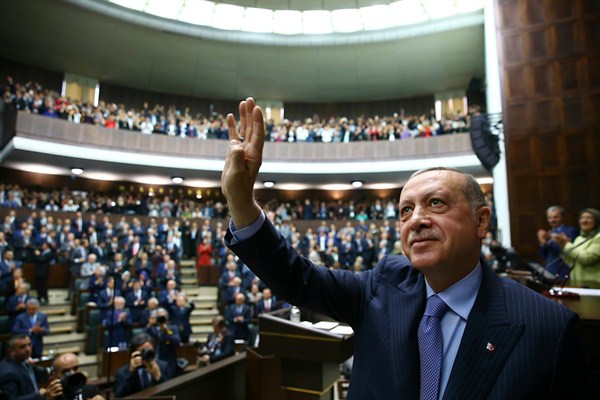For much of the past 15 years, Turkey had been one of the world’s fastest-growing economies. The “Turkish miracle” earned plaudits from the global financial elite, drew billions of dollars of investment into the country, and helped the political fortunes of its powerful Islamist leader, the prime minister-turned-president, Recep Tayyip Erdogan, who is now eyeing even more authority in snap elections next month.
But those halcyon days of the Turkish miracle are gone. Over the past year alone, the Turkish lira has lost over 10 percent of its value against the dollar, and this week Turkey’s credit rating was lowered further into “junk” status over inflation fears. While several international factors—weak economic growth in the eurozone, the readjustment of U.S. monetary policy since the financial crisis, and the wars in Iraq and Syria—have dimmed Turkey’s economic luster, many of Turkey’s problems are its own doing. Erdogan’s increasingly strongman-style rule, along with rampant corruption, the erosion of the rule of law and worsening security, are all adding to the country’s economic troubles.
But what is untenable for Turkey is not necessarily the same for Erdogan. The economic system he built is set up so that Turkey’s loss is his gain. As long as he can keep that system running, which is easier than many think, Erdogan can weather these economic woes.

